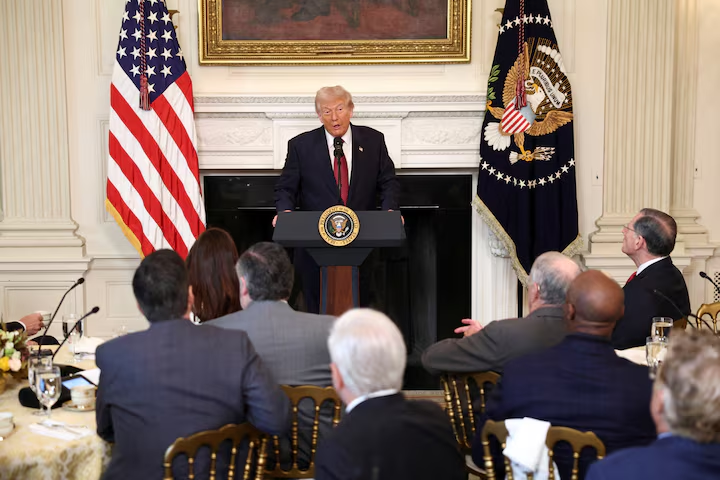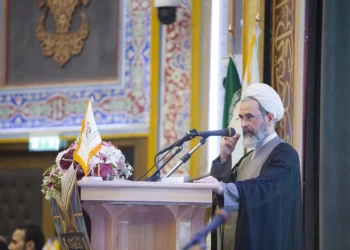WASHINGTON (Realist English). President Donald Trump is moving aggressively to shape next year’s midterm elections, taking an unusually hands-on role that Republicans say reflects both his slipping approval ratings and the high stakes for his presidency.
According to multiple GOP strategists, Trump has been calling candidates, delivering early endorsements and urging several House Republicans to abandon Senate or gubernatorial ambitions and instead seek reelection — efforts aimed at preventing damaging primaries and preserving the party’s narrow congressional majorities.
Trump’s escalation began after the November 4 state and local elections, when exit polls showed voters punishing Republicans over the rising cost of living. In a series of meetings afterward, Trump pressed aides to center the party’s messaging on affordability and highlight areas where he claims progress in lowering prices. The White House recently rolled back tariffs on several grocery items, though overall costs remain elevated.
His involvement now includes near-daily political briefings, bursts of phone calls to allies and detailed walkthroughs of polling and fundraising data, officials said.
The push comes as Trump’s approval rating has fallen to 38% — his lowest this year — amid voter frustration over the economy. Some Republicans warn that an unpopular president historically costs his party seats, and Trump’s recent forced reversal on releasing Justice Department files on Jeffrey Epstein has raised further questions about his political leverage.
Trump wants GOP candidates to campaign heavily on his new tax-cut package, arguing that larger refunds in April will offset anger over high prices. Analysts, however, note that tax cuts do not directly lower everyday costs and may not shift voter sentiment.
For Trump, the 2026 vote is also a matter of political survival. Losing control of either chamber would allow Democrats to block his remaining agenda — and potentially initiate a third impeachment, Republican strategists say. “The Senate is the last line of defense,” one operative noted.
In recent months, Trump has already endorsed at least 16 Senate contenders and more than 40 House candidates, an unusually large number so early in the cycle. He has also convinced several incumbents to abandon statewide bids to avoid splitting the party.
Trump has argued publicly that one reason Republicans underperformed this November is because he was not on the ballot. As a result, he plans to take a leading role on the campaign trail next year, promoting tax cuts and rallying turnout among low-propensity voters.
Democrats say they welcome the more visible Trump, predicting it will energize their base. “Every stop on his tour will remind voters how much harder he’s made life for ordinary Americans,” a Democratic National Committee spokesperson said.


















